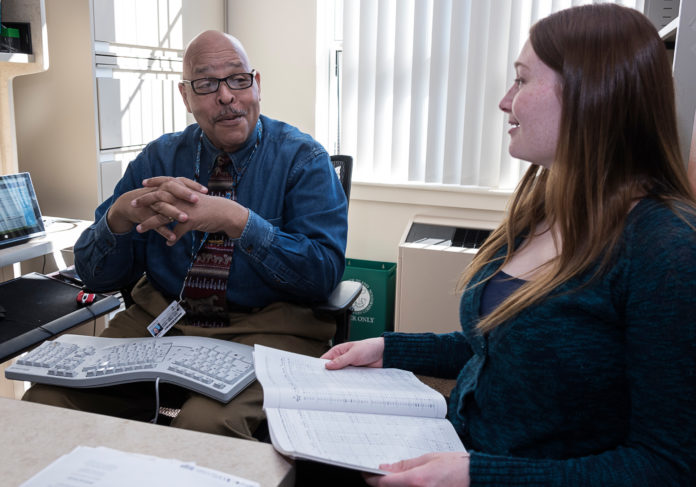
Saving for retirement is a concern for millennials in professional or college investment clubs, but not necessarily for their peers, several Rhode Island millennials say.
Kyle St. Jean, 21, of Coventry, is a senior economics major at the University of Rhode Island and president of the school’s Quantitative Finance and Neuro-economics Club. Gordon Dash Jr., professor of computational finance and a member of the faculty in interdisciplinary neuroscience, is the club’s adviser.
St. Jean also works part time as a radiology associate at Kent Hospital and has an IRA through his employer. While college seniors tend to pay more attention when job hunting to the value of investment vehicles for retirement, most students his age don’t, he said.
“All of my friends on campus are fixed on the college life and haven’t begun to think of what’s next,” St. Jean observed. “I’m one of the few that is actively pursuing job opportunities and thinking about how I am going to manage my investments in the future.”
According to local sociology experts and Bankrate.com surveys of millennials, the Great Recession has contributed to delays in the launching of careers for this generation, whose ages range from 18-34.
“Young adults face the challenge of starting their careers in the aftermath of a severe economic downturn,” said Nicole Lagace, director of HousingWorksRI at Roger Williams University.
According to her agency’s 2015 Housing Fact Book, younger millennials’ unemployment rate (ages 20-24) was 12.5 percent in 2014, the highest in New England. The median personal income is $14,509, much lower than what is needed for affordable, one-bedroom rentals here, the report states.
Travis Escobar, president, executive director and founder of the Millennial Professional Group of Rhode Island, which has about a dozen core members, says his organization is developing programming to address the issue of long-term financial and retirement planning for millennials.
“Many millennials are living paycheck to paycheck,” he said. “That doesn’t allow them to think about retirement.”
While Dash agrees that seniors are better prepared than other students, business students also have a natural affinity for financial planning and tend to pay attention to key principles like saving, investing, minimizing credit card debt and budgeting.
“I tell my finance majors, ‘You have to be expertly prepared, because you’re going to manage my pension,’ ” Dash quipped.
Yet, before students think about something as far off as retirement, they have other priorities that get in the way, said St. Jean and Escobar. These include financing an education, competing for well-paying jobs in one’s field, paying down student-loan debt and being able to afford raising a family, they said.
St. Jean does not have student-loan debt, but many others do, including Emerson Toloza, 23, a Pawtucket senior at the New England Institute of Technology majoring in business management. Part of his $100,000 debt accrued because of flight lessons he took for the associate degree he’s already earned in aviation science, he said.
He does manage to save while working full time as a lead line technician at the Providence Jet Center in North Kingstown, he said, noting it’s not easy.
“Paying off your student loans is a No. 1 priority,” he explained. “I put into the 401(k) because they match, and down the line that’s going to benefit me.”
Retirement planning “is on my radar,” added Matt Coupe, 23, of North Scituate, who is the millennial professional group’s treasurer.
The Johnson & Wales University graduate says forecasting models convey the value in starting saving while young, but he and his peers question whether Social Security benefits will be available to them by the time they’re eligible.
“Going back a few generations, it was thought things like Social Security and Medicare would be there. We look at things more skeptically,” he said.
According to Helen Mederer, sociology and labor research professor at URI, millennials don’t view social institutions like marriage as an imperative and have put off work because of the high unemployment rate. They tend to participate in a sharing economy, meaning they’re more likely to share assets, and are independent.
“The difference for millennials who have a college education and those who don’t is starker compared with other generations,” she added. “The payoff for college is not as high but they need it more because, without it, they’re going to do worse.” •










